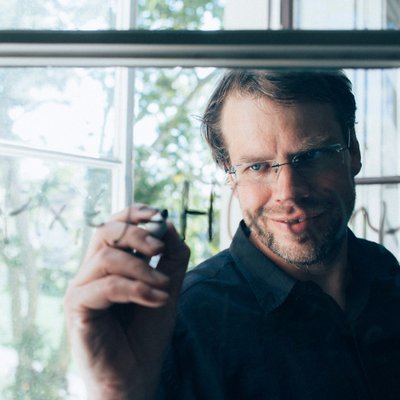From Gauge Symmetries to Gauge-Invariant Approaches
From Philosophical Reflections on Gauge Symmetries to Gauge-Invariant Approaches to (Particle) Physics from 15th of July until 17th of July 2024 in Graz, Austria
About the conference
Modern physics is written in the language of gauge field theories. The Standard Model of particle physics is a gauge theory in the sense that it rests on internal local symmetries. General relativity is a gauge theory in the sense that it rests on an external local symmetry. Given the pivotal role of gauge (i.e. local) symmetries in modern physics, it is imperative to thoroughly study their conceptual underpinnings. One central topic of this workshop concerns the ontological status of gauge symmetries. Should they be interpreted as mere mathematical structure of our descriptions of reality or do they represent the structure of reality? There is some noticeable consensus among physicists and philosophers that (i) gauge symmetries are not physically real but rather are mathematical redundancy and that (ii) physically real quantities must be gauge-invariant.
However, as has been pointed out by several researchers, if this is so, then we find worrisome conflicting assumptions at the very heart of modern particle physics. For instance, textbook approaches to the BEH mechanism imply that the Higgs field gives mass to particles via the spontaneous symmetry breaking of a gauge symmetry. But how could the breaking of unphysical mathematical redundancy have any physical impact on our world? Furthermore, given the fact that each and every “elementary” field/particle in the Standard Model Lagrangian is actually a gauge-variant quantity, their link with the actual fields/particles experimentally detected is a non-trivial and standing issue. When we turn from quantum field theory to the other pillar of modern physics, general relativity, the first thing to note is that GR is invariant under arbitrary differentiable coordinate transformations, which means that the theory is based on an external local symmetry referred to as general covariance or diffeomorphism invariance. This invariance under diffeomorphisms of the manifold is often assumed to imply that the manifold and its point cannot be considered physical quantities. In this sense, time coordinates and time evolution become gauge-dependent in GR which leads to several questions regarding the nature of time.
Where does this leave us? The thesis to be discussed in the course of this workshop is whether such tensions and conceptual problems can be resolved by pursuing gauge-invariant approaches. Examples of facilitation of gauge-invariant approaches are lattice formulations, the Fröhlich-Morchio-Strocchi mechanism, and the dressing field method as they have been discussed e.g. in arXiv:2110.00616.
The aim of this workshop is to bring together philosophers and physicists in order to discuss the nature of gauge symmetries, reflect on the significance of the gauge principle, clarify virtues of and obstacles to gauge-invariant approaches, and shed light on ontological implications of such approaches.
Topics and questions we want to discuss include but are not limited to:
1. The nature of gauge symmetries
Are gauge symmetries physical symmetries, symmetries of nature, or are they mere descriptive redundancy? Do they have direct empirical significance? Or do we perhaps need a more refined classification according to which certain gauge symmetries exhibit specific physical signatures, while others do not? What does it mean to say that a gauge symmetry is spontaneously broken? Can only gauge-invariant quantities be physically real?
2. Gauge-invariant approaches
What can be achieved by pursuing gauge-invariant approaches? What are the virtues of and obstacles to gauge-invariant approaches? What are the ontological implications of approaches like the FMS? What are the ontological implications of the dressing field method? Can we expect that experimental results will confirm/suggest such approaches? What distinguishes the dressing field method from gauge fixing?
3. Physical space-time
Stripping general relativity off its symmetries, i.e., eliminating diffeomorphism and local Lorentz symmetries, may hint at the nature of the fundamental d.o.f. from which spacetime d.o.f. emerge. Some quantum gravity seems to suggest as much, notably LQG, causal dynamical triangulation, and causal sets. So may methods allowing formulations entirely in terms of gauge-invariant quantities, such as the FMS mechanism and the dressing field approach. Then, new challenges arise: For instance, cosmology is typically approached from within a fixed metric and cosmological time defined via a special choice of gauge. Accordingly, it is non-trivial to specify a manifestly gauge-invariant cosmological dynamics.
A preliminary program is now available.
We start on Monday, 15th of July, at 09:00 and will finish on Wednesday, 17th of July, at 18:00. There will be a conference dinner on Tuesday at 18:30.
Duifje van Egmond (IFT & ICTP-SAIFR Sao Paulo, Brasilien)
Henrique Gomes (University of Oxford, UK)
Jeff Greensite (San Franciscio State University, USA)
Guy Hetzroni (The Open University of Israel)
Philipp Höhn (Okinawa Institute of Science and Technology, Japan) (tbc)
Renate Loll (Universität Nijmegen, Niederlande)
Michael Stöltzner (University of South Carolina, USA)
Nicholas Teh (Universität Notre Dame, USA)

Registration
There is no formal registration, nor a conference fee. However, to plan for coffee breaks etc., please send an email with your contact information, if you want to participate for the full time or only partly, as well as information on whetehr your name and affiliation may be made public in context with the event (e.g. list of participants) to philipp.berghofer(at)uni-graz.at.
Venue
The conference will take place at the University of Graz in Graz, Austria. Location of the conference is Merangasse 12, room SR 55.01. If you want to use Google Maps for it, you can find the location here.
Graz is reachable by plane at Graz airport. There is also a direct train connection to Vienna airport every other hour, which takes about 3 hours. With one change in between, this is also possible every hour. Train connections, including local trains, bus and trams, can be obtained from the Austrian railway company ÖBB. Also several night trains either go directly to Graz or to Vienna or Bruck an der Mur, which is about 30 minutes by train from Graz.
Graz is a very touristic city, and you should book an accommodation soon. Besides the large booking portals, also the city of Graz has its own portal, which also provide sinformation on touristic destination. If you need help, please contact us.

To present your work, please submit a title and abstract. Submissions, summarizing the proposed talk, should not exceed 500 words, must be written in English (conference language), and should be prepared for blind review. Please send your submissions and general inquiries to philipp.berghofer(at)uni-graz.at. Women and members of other traditionally underrepresented groups are especially encouraged to apply.
The submission deadline is April 14, 2024.
Organizers and Contact
Please do not hesitate to contact us about questions you have!

Dr.phil. BSc MA Philipp Berghofer

PhD Jordan Francois

Univ.-Prof. Dipl.-Phys. Dr.rer.nat. Axel Torsten Maas
+43 316 380 - 5231
Institut für Physik
Nach Vereinbarung per eMail
https://particle.uni-graz.at/en/structures-and-observables/